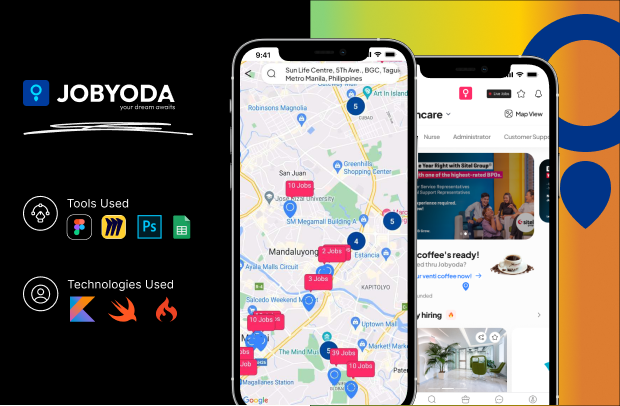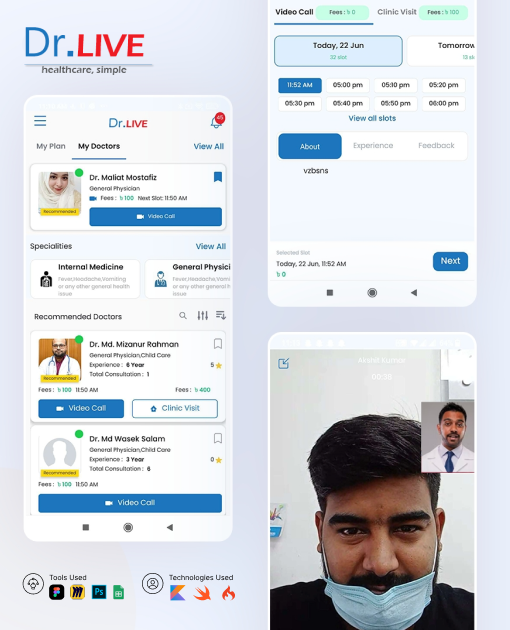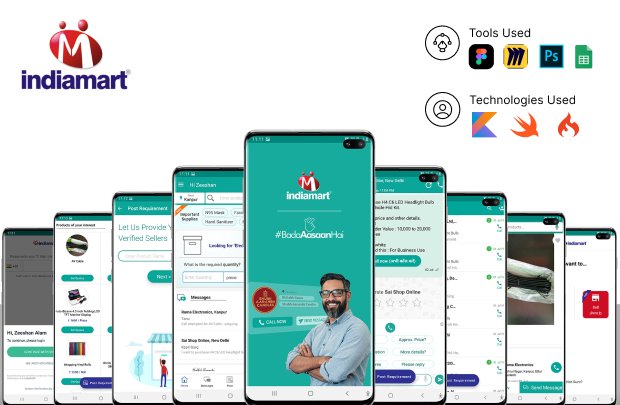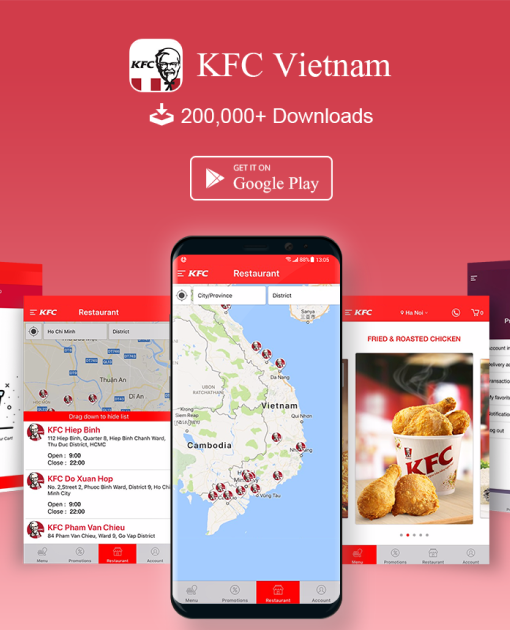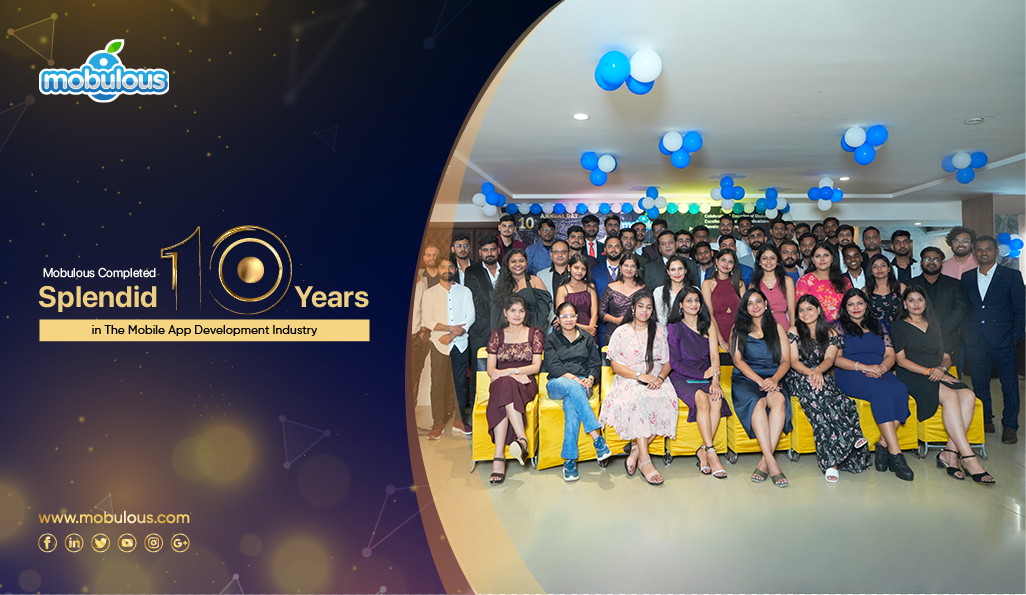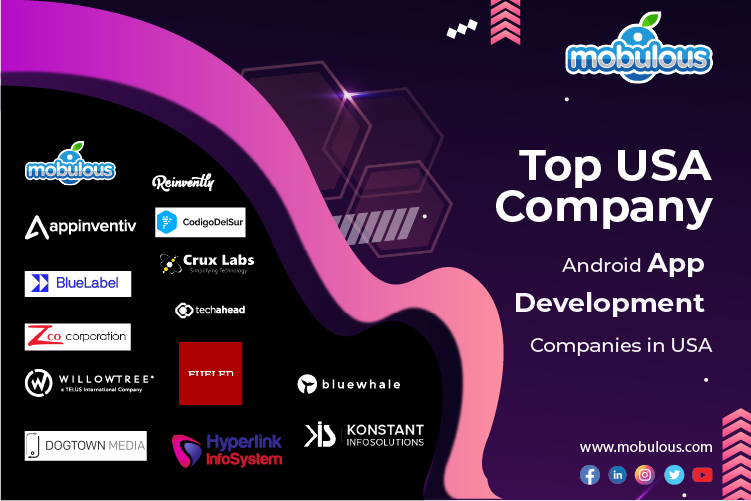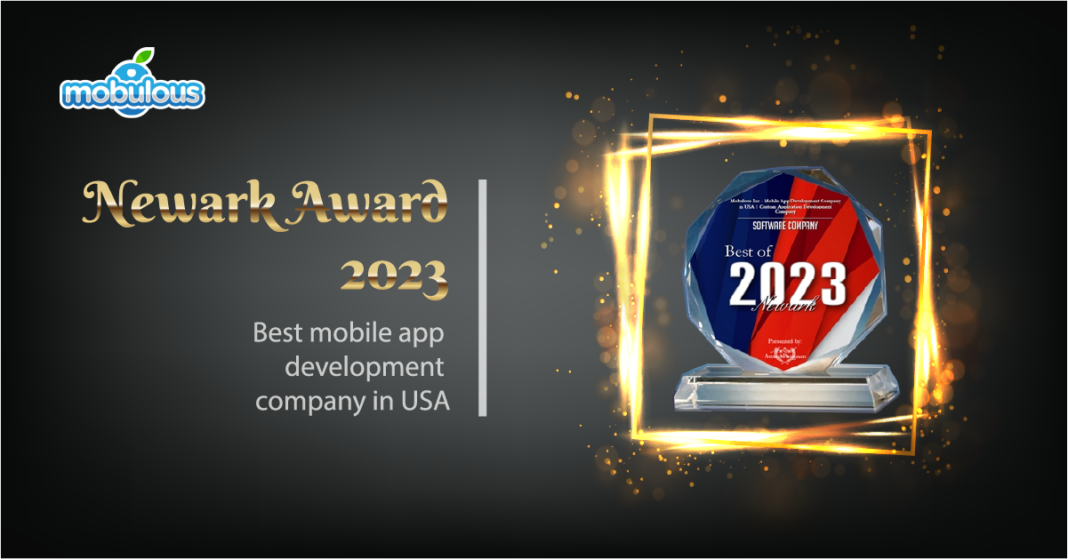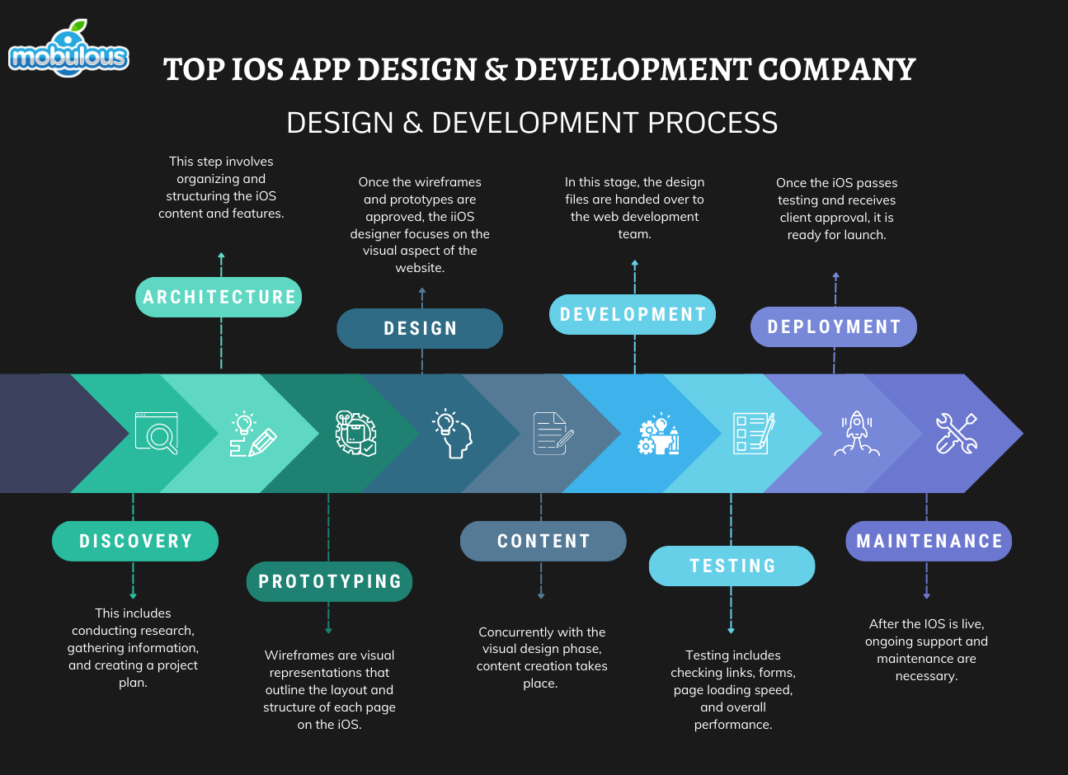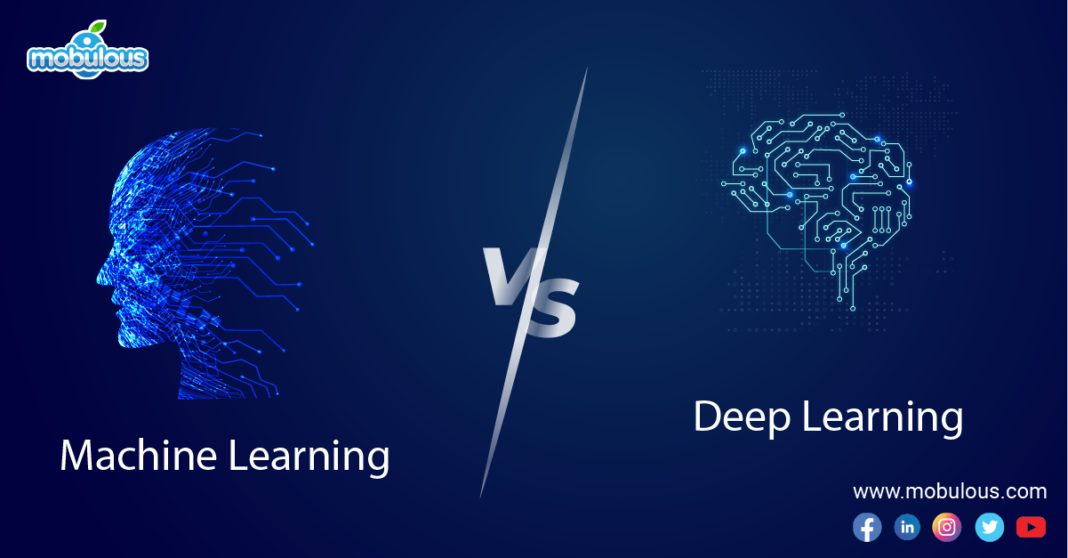What is Ethereum App Development?
Ethereum app development simply involves building decentralized apps or dApps on the Ethereum blockchain platform. These apps operate on a peer-to-peer (P2P) network rather than centralized servers, leveraging smart contracts for automated and trustless execution of program logic.
Ethereum applications can serve different purposes, from financial services and gaming to supply chain management and digital identity verification that offers security, immutability, and transparency through blockchain technology.
How Does Ethereum Work For App Development?
Ethereum’s architecture allows the Ethereum expert development team to create and launch decentralized apps through its unique combination of blockchain technology and smart contracts. The platform provides crucial tools and features for building robust apps. Let’s discuss how it works for application development:
1. Smart Contract Implementation
Smart contracts form the backbone of Ethereum apps, written normally in the Solidity programming language. These self-executing contracts contain the rules and logic for the app, automatically implementing agreements between parties without intermediaries. The compiled code runs on the EVM or Ethereum Virtual Machine.
2. Decentralized Storage
The Ethereum network stores app data across multiple nodes, ensuring accessibility and redundancy. Through protocols like Swarm or IPFS, apps can store and retrieve data in a decentralized manner, eradicating single points of failure and reducing dependency on centralized servers.
3. Consensus Mechanism
Ethereum leverages a proof-of-stake consensus mechanism in order to validate transactions and maintain network security. This system enables nodes to verify transactions and add new blocks to the chain, ensuring data integrity and preventing malicious activities within apps.
4. Gas and Transaction Processing
Ethereum apps process transactions leveraging Ethereum’s native cryptocurrency (Ether) as gas fees. Each operation within an app requires computational resources, and gas ensures effective resource allocation while preventing spam and infinite loops in smart contracts.
5. Network Interaction
Apps interact with the Ethereum network through Web3 libraries and APIs. These tools enable functions like transaction signing, wallet integration, and smart contract interaction, creating a bridge between the app’s front end and the blockchain.
Key Features of Ethereum-Based Apps
Ethereum-based apps possess exceptional characteristics that distinguish them from conventional centralized apps. These features allow for the latest possibilities in digital interaction and value exchange. The must-have features of Ethereum-based applications are listed below one by one.
1. Decentralized Architecture
The app’s data and logic are distributed across the Ethereum network rather than residing on central servers. This architecture ensures high availability, elimination of single points of failure, and resistance to censorship while maintaining data transparency and data integrity.
2. Smart Contract Automation
Apps utilize smart contracts for the automated execution of business agreements and logic. These self-executing contracts eradicate the need for intermediaries, reduce costs, and ensure transparent, immutable execution of programmed rules and conditions.
3. Token Integration
Ethereum apps can seamlessly incorporate various standards (ERC-20, ERC-721, ERC-1155) for creating tailored cryptocurrencies, utility, or NFT tokens. This feature enables new business models and incentive structures within Ethereum apps.
4. Interoperability
Ethereum apps can interact with other Ethereum-based services and protocols through standardized interfaces, This interoperability enables composability, where different apps can be combined in order to create more complex financial instruments or services.
5. Cryptographic Security
Built-in cryptographic mechanisms ensure secure data integrity and transactions. Public-key cryptography allows for secure authentication and authorization, while blockchain immutability presents unauthorized modification to application data.
6. Transparent Verification
All transactions and state changes within apps are publicly verifiable on the Ethereum blockchain. This transparency builds trust among users and enables independent auditing of app behavior and transaction history.
Different Platforms For Ethereum App Development
Ethereum apps can be created for diverse platforms in order to ensure widespread accessibility and user engagement. Each platform requires specific considerations and application development approaches. Here are the platforms for which Ethereum apps can be developed:
1. Web App Development
Web app development for Ethereum leverages JavaScript frameworks like Vue.js, React.js, or Angular.js combined with Ethers.js or Web3.js libraries.
These apps offer cross-platform compatibility, seamless wallet integration, and easy updates through browser extensions like MetaMask, making them highly accessible to users.
2. iOS App Development
Native iOS app development for Ethereum leverage frameworks like Web3Swift and WalletConnect.
The application development focuses on developing secure wallet implementations, seamless user experiences, and effective transaction handling while adhering to Apple’s guidelines and integrating iOS-specific features for blockchain and cryptocurrency interactions.
3. Android App Development
Android app development for Ethereum apps utilizes Web3j for Java or Kotlin integration.
The platform supports native wallet implementations, blockchain interactions, and secure key storage while leveraging Android’s security features and providing smooth integration with diverse Android-specific functionalities.
4. Desktop App Development
Desktop application development for Ethereum leverages Electron or similar frameworks for cross-platform compatibility.
These applications offer enhanced security features, local key storage capabilities, and robust transaction management while providing full-node integration options for advanced users.
How to Set Up An Ethereum Development Environment?
1. Establishing an Ethereum development environment needs multiple crucial tools and frameworks. The proper setup ensures effective development, testing, and deployment of smart contracts and decentralized apps. Let’s learn how can we set up an Ethereum development environment:
2. Install Node.js and npm as the foundation for development tools.
3. Set up MetaMask wallet extension for testing and transaction management.
4. Install Truffle or Hardhat as a development framework and testing suite.
5. Configure the local blockchain environment using Ganache for testing purposes.
6. Set up code editor with Solidity plugins and syntax highlighting.
How to Deploy a Smart Contract on Ethereum?
The deployment process for smart contracts on Ethereum follows a systematic approach in order to ensure robust functionality and security. By following the below-mentioned steps you can create highly effective and reliable smart contracts seamlessly and hassle-free:
1. Contract Development
Compile and create smart contract code by leveraging Solidity, including all necessary functions, logic, and variables. Enforce proper error handling, security measures, and access controls while following the industry's best practices for code efficiency and gas optimization.
2. Testing and Verification
Conduct comprehensive testing using Ethereum application development networks like Testnets or Ganache. Perform integration tests, unit tests, and security audits in order to identify and resolve potential susceptibilities before deploying to the mainnet.
3. Compilation and ABI Generation
Compile the Solidity code into bytecode leveraging appropriate compiler versions. Generate the Application Binary Interface or ABI that demonstrates how to interact with the contract, including function signatures and parameter types.
4. Network Selection
Select the highly suitable Ethereum network for deployment, i.e., testnet for final testing or mainnet for production. Ensure sufficient ETH balance in the deploying account to cover gas fees and deployment costs.
5. Deployment Execution
Leverage Ethereum app frameworks like Hardhat or Truffle in order to deploy the compiled contract. Monitor the deployment transaction, verify successful execution, and document the deployed contract address for future reference.
What Programming Languages Are Supported For Ethereum App Development?
Application development for Ethereum platform generally revolves around Solidity which is a top-level contract-oriented programming language that is specifically designed for writing smart contracts on the EVM, i.e., Ethereum Virtual Machine. It is the most widely used programming language due to its robust community support and simplicity.
Below are the other essential programming languages supported for Ethereum application development:
1. Vyper: Vyper is a Python-inspired language focusing on simplicity and security, offering features like reduced complexity and increased auditability.
2. Yul: Yul is an intermediate language that can be compiled into EVM bytecode, often used for low-level, gas-efficient programming.
3. LLL (Low-Level Lisp-like Language): LLL is a language for writing low-level EVM code, used primarily for advanced optimization.
4. Serpent: Serpent is another Python-inspired language, though deprecated, occasionally referenced for older projects.
In addition to this, front-end integration and tooling often rely on languages like JavaScript (e.g., with Web3.js or Ethers.js) and Python for scripts interacting with the blockchain.
What Tools And Frameworks Are Commonly Used For Ethereum App Development?
Ethereum app development is primarily supported by a robust ecosystem of tools and frameworks in order to streamline tasks, including writing, testing, deploying, and interacting with smart contracts. The highly crucial tools and frameworks that are most commonly used for Ethereum application development are as follows:
1. Truffle Suite: Truffle Suite is a development framework providing tools for compiling, deploying, and testing Ethereum smart contracts.
2. Hardhat: Hardhat is a flexible development environment focusing on debugging, testing, and deployment of Ethereum projects.
3. Ganache: Ganache is a personal blockchain for testing Ethereum smart contracts locally.
4. Remix IDE: Remix IDE is a browser-based Integrated Development Environment for writing, compiling, and debugging smart contracts in Solidity.
5. Web3.js and Ethers.js: Web3.js and Ethers.js are JavaScript libraries that are used for interacting with the Ethereum blockchain, enabling dApp integration.
6. OpenZeppelin: OpenZeppelin is a library of reusable, secure smart contract templates and modules, such as ERC-20 and ERC-721 implementations.
7. Infura: Infura is a service for accessing Ethereum nodes via APIs, enabling dApps to interact with the Ethereum network without hosting a node.
8. IPFS (InterPlanetary File System): IPFS is a decentralized storage system often used to store off-chain data for Ethereum dApps.
9.MetaMask: MetaMask is a browser extension and wallet enabling users to interact with Ethereum dApps securely.
10. Brownie: Brownie is a Python-based framework for Ethereum development, offering powerful scripting and testing tools.
What is The Difference Between Ethereum Mainnet And Testnet?
The Ethereum Mainnet is the primary and live blockchain network where actual transactions occur by leveraging real ETH and deployed apps handle and manage real value.
In contrast, testnets (like Goerli, and Sepolia) are alternative networks that are designed specifically for testing smart contracts and apps without risking real assets.
Testnets leverage test ETH, which can be obtained freely from faucets, enabling the Ethereum expert development team to experiment, debug, and validate their apps before mainnet deployment.
How to Integrate Ethereum Apps With The Existing Systems?
Integration of Ethereum apps with existing systems mandates careful planning and execution of different components. The systematic approach to achieve seamless integration is explained below one by one:
1. API Integration
Enforce RESTful APIs or GraphQL endpoints in order to foster communication between conventional systems and blockchain elements. Design middleware services in order to handle data transformation, event tracking, and transaction management while maintaining system reliability and consistency.
2. Database Synchronization
Create synchronization mechanisms in order to maintain consistency between on-chain and off-chain data. Enforce event listeners and webhooks in order to capture blockchain events, ensure real-time data accuracy, and update local databases across integrated systems.
3. Authentication Bridge
Create authentication systems that bridge conventional user management with blockchain wallets. Enforce secure signing mechanisms, maintain session management, and handle wallet connections while ensuring compliance with existing security protocols.
4. Error Handling
Design comprehensive error-handling mechanisms in order to manage blockchain-specific issues like transaction failures or network congestion. Enforce fallback options, proper error reporting, and retry mechanisms in order to maintain system stability and user experience.
What Security Measures Are Essential For Ethereum-Based Apps?
Security is paramount in Ethereum app development. Multiple essential measures need to be enforced in order to safeguard assets and ensure safe operations. These security measures are mentioned below comprehensively:
1. Smart Contract Auditing
Conduct thorough security audits of smart contracts by using automated tools and manual code reviews. Enforce formal verification methods, ensure proper access controls and permission management, and test for common vulnerabilities.
2. Transaction Security
Enforce secure transaction signing procedures, safeguard against replay attacks, and validate input parameters. Leverage proper nonce management, transaction monitoring, and gas optimization in order to prevent unauthorized operations.
3. Access Control Implementation
Design robust access control mechanisms leveraging role-based permissions and multi-signature necessities. Enforce proper authentication checks, event logging, and emergency stop mechanisms for crucial functions.
4. Wallet Integration Security
Ensure secure wallet integration with proper encryption, connection management, and signature verification. Enforce secure key storage solutions and safeguard against phishing attacks and unauthorized access attempts.
What is The Development Process For Creating An Ethereum-Based Decentralized Application (dApp)?
The development of Ethereum-based dApps (decentralized applications) follows a structured process in order to ensure functionality and quality. As we know that the procedure of its development is quite complicated, we have come up with a comprehensive overview of its development lifecycle:
1. Requirements Analysis
Gather and document comprehensive requirements such as business logic, technical specifications, and user interactions. Demonstrate the scope, identify crucial features, and set up success criteria for the application.
2. Architecture Design
Build a detailed system architecture, including smart contract design, interaction patterns, and data structures. Plan for gas optimization, scalability, and integration requirements while considering security implications.
3. Frontend Development
Create user interfaces using Web3-enabled Ethereum app frameworks and libraries. Enforce wallet connections, real-time updates, and transaction management, while ensuring optimal user experience across diverse devices.
4. Smart Contract Development
Compile, test, and optimize smart contracts enforcing the core business logic. Follow the best practices for gas efficiency, security, and maintainability while ensuring proper error handling and event emission.
5. Testing and Deployment
Conduct meticulous testing such as integration tests, unit tests, and security audits. Deploy contracts in order to test networks, prepare for mainnet deployment, and conduct user acceptance testing with proper documentation.
What is Solidity, and How to Use it For Ethereum Development?
Solidity is the primary programming language for creating smart contracts on the Ethereum blockchain. It is a statically typed and contract-oriented language designed specifically for executing smart contracts.
Solidity combines features from multiple programming languages and includes specific constructs for handling blockchain-related operations, event handling, and contact inheritance. The key aspects of using Solidity are given below:
1. Install Solidity compiler through npm or package manager.
2. Structure contracts with state variables and functions.
3. Implement modifiers for access control and validation.
4. Use events to track contract state changes.
5. Handle error cases with required and revert statements.
6. Test contracts using JavaScript-based testing frameworks.
Role of Infura or Alchemy in Ethereum Development
Infura and Alchemy serve as infrastructure providers that offer node-as-a-service solutions for Ethereum development. These platforms provide trusted access to Ethereum networks without running full nodes, allowing Ethereum app developers to interact with the blockchain through APIs.
They handle node maintenance, data management, and scaling while offering additional features like analytics, monitoring, and improved API capabilities for both application development and production environments.
Role of Tokens in Ethereum Apps
Tokens are digital assets created on the Ethereum blockchain that represent value, utility, or governance rights within apps. They enable features like in-app currencies, voting mechanisms, reward systems, and ownership verifications.
Token follows standardized interfaces (ERC-20, ERC-721, ERC-1155), ensuring compatibility across diverse apps and platforms while fostering easy integration of economic models into decentralized apps.
Can Smart Contracts Interact With External APIs?
Smart contracts can’t directly interact with external APIs due to their deterministic nature. However, they can receive external data through Oracle services like Chainlink, which acts as middleware between smart contracts and external data sources.
Oracles provide verified data feeds while maintaining the blockchain’s security and consensus mechanisms, allowing smart contracts in order to react to real-world information and events.
Does Ethereum Support Private Blockchain Networks?
Yes, Ethereum technology can be used to build private blockchain networks through platforms like Hyperledger Besu or Quorum.
These private networks use the same fundamental technology as the public Ethereum network but operate within controlled environments with specified participants.
They offer enhanced privacy, customizable consensus mechanisms, and higher transaction throughput for enterprise applications.
Will The dApp Work Across Different Ethereum Networks?
Decentralized apps (dApps) can work across different Ethereum networks (mainnet, testnets, private networks) but require specific configurations for each network.
The smart contracts need to be deployed separately on each network, and the frontend application must be configured to connect to the appropriate network endpoints, with proper network IDs and contract addresses.
Are ERC-20 Tokens The Only Standard For Ethereum?
No, ERC-20 is just one of several token standards on Ethereum. Other prominent standards include ERC-721 for non-fungible tokens (NFTs), ERC-1155 for multi-token contracts, and ERC-777 for advanced fungible tokens.
Each standard serves different purposes and use cases, offering varying functionality for different types of digital assets and applications.
Are Layer-2 Solutions Compatible With Ethereum-Based dApps?
Layer-2 solutions are fully compatible with Ethereum-based dApps, offering scalability enhancements while maintaining security.
Solutions like zkRollups, State Channels, and Optimistic Rollups can be integrated into existing dApps in order to reduce transaction costs and increase processing speed.
Nevertheless, integration requires specific modifications to smart contracts and frontend interfaces in order to handle Layer-2 interactions and state management while maintaining compatibility with the main Ethereum network.
Do Users Need A Specific IDE For Ethereum Development?
While no specific IDE is essential, certain development environments are optimized for Ethereum development. Popular options include Remix IDE (web-based), Ethereum-specific IDEs like Truffle Suite, and Visual Studio Code with Solidity extensions.
These tools provide features like debugging capabilities, syntax highlighting, and built-in compilation and deployment tools for effective Ethereum app development.
Cost of Ethereum App Development
The Ethereum app development cost is around USD 20,000 and USD 200,000 and more. However, this pricing structure varies depending on various factors such as smart contract complexity, UI/UX design, integration requirements, security audits, and deployment costs.
Simple dApps might start from USD 20,000 whereas complex platforms with multiple features can surpass USD 200,000. Additional costs include ongoing maintenance, infrastructure expenses, gas fees, and the expertise of the Ethereum app development company.
Timeline of Ethereum App Development
Ethereum app development normally spans 5 to 9 months, depending on the scope of the project and the different business needs. The basic dApps might require 5 to 7 months for development, testing, and deployment.
Complex apps with multiple smart contracts, third-party integrations, and extensive front-end features can take 5 to 9 months or longer.
However, the timeline includes requirement analysis, UI/UX design, QA testing, security audits, deployment phases, and the skill set of the Ethereum app development company.
Benefits of Hiring an Ethereum App Development Company
A professional Ethereum app development company brings specialized expertise and resources to blockchain projects. Let’s discuss why partnering with them is highly beneficial for small and big businesses. Below are the key advantages of Ethereum development company and their partnership with businesses looking for Ethereum app development:
1. Technical Expertise
The best Ethereum app development company has access to experienced Ethereum app developers who are skilled in Solidity, Blockchain architecture, and Web3 technologies. These professional teams stay updated with the latest development, optimization techniques, and security practices while ensuring top-quality code and effective development processes.
2. Comprehensive Development Approach
A professional Ethereum app development company offers end-to-end services from planning to deployment. They handle requirement analysis, architecture design, development, QA testing, and maintenance while ensuring all prospects of the project are properly coordinated.
3. Risk Management
Expert teams at the top Ethereum app development company enforce robust security measures and Ethereum blockchain development industry best practices. They conduct meticulous testing, security audits, and code reviews while maintaining proper documentation and following established development protocols.
4. Time and Cost Efficiency
The structured development processes and experienced teams at the best Ethereum app development company reduce development costs and time. They leverage existing frameworks, tested solutions, and tools while avoiding common pitfalls and unnecessary experimentation.
5. Ongoing Support
A highly experienced Ethereum app development company provides post-deployment support and maintenance services. They handle updates, bug fixes, and performance optimization while offering troubleshooting assistance and technical guidance.
Steps to Partner With the Right Ethereum App Development Company
Selecting the top Ethereum app development company is essential for the success of the project. By following the below steps carefully you can partner with the most suitable Ethereum app development company and ensure a highly beneficial partnership.
1. Research and Shortlisting
Investigate the potential Ethereum app development company’s experience, portfolio, and client reviews. Consider its technical expertise, industry recognition, and successful project implementations while creating a shortlist of qualified candidates.
2. Technical Capability Assessment
Evaluate the premier Ethereum app development company’s blockchain expertise, development methodologies, and technical skills. Review its understanding of smart contracts, security practices, and integration capabilities while assessing its problem-solving approach.
3. Project Understanding
Discuss the project requirements, goals, and expectations in detail. Ensure clear communication about technical specifications, timelines, deliverables, and potential challenges while establishing a mutual understanding with the Ethereum app development company.
4. Development Process Review
Examine the Ethereum app development company’s development methodology, project management approach, and quality assurance practices. Evaluate its communication protocols, progress tracking methods, and risk management strategies.
5. Legal and Commercial Terms
Review contract terms, intellectual property rights, and confidentiality agreements of the top Ethereum app development company. Discuss pricing structure, payment terms, and project milestones while ensuring all legal aspects are properly addressed.
6. Communication Framework
Establish clear communication channels, reporting structures, and escalation procedures with the top Ethereum app development company. Define meeting schedules, progress updates, and feedback mechanisms while ensuring effective collaboration throughout the project.
 Contact us
Contact us




















